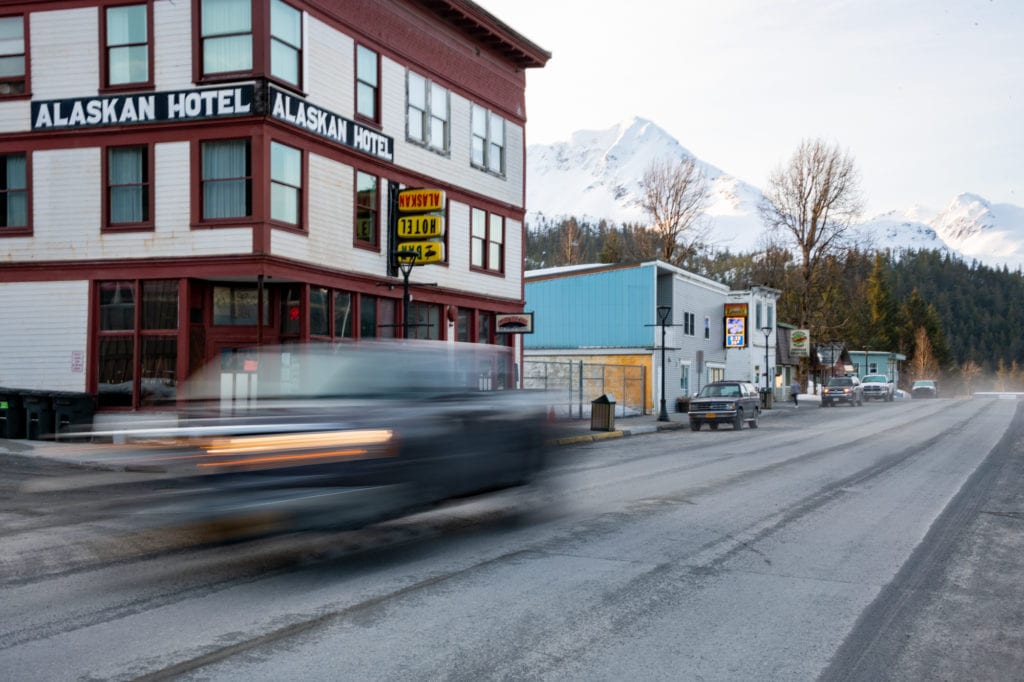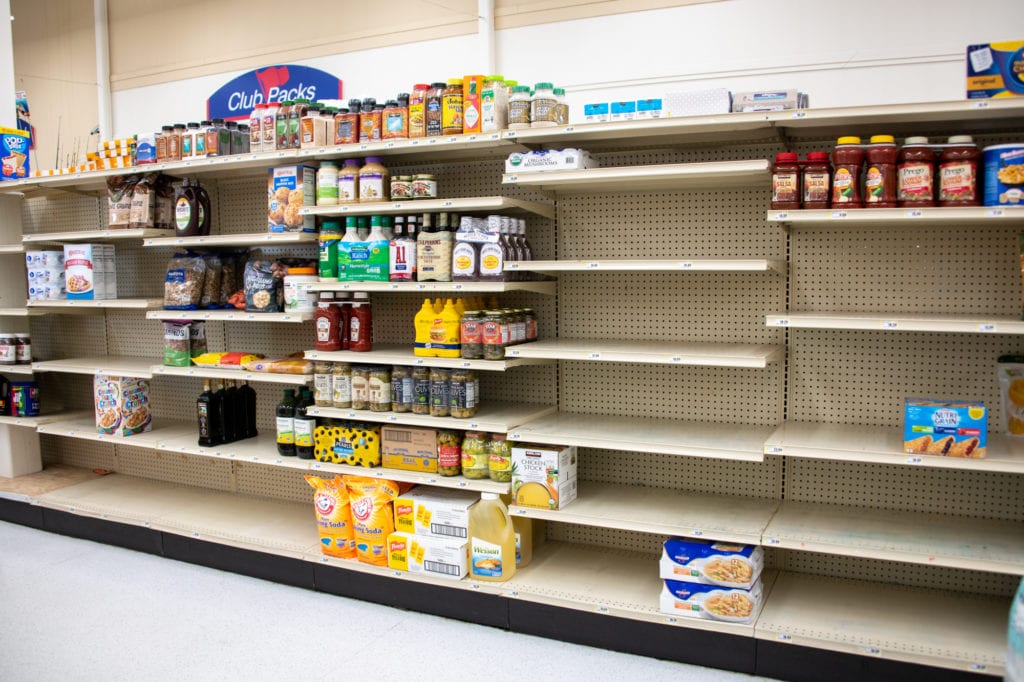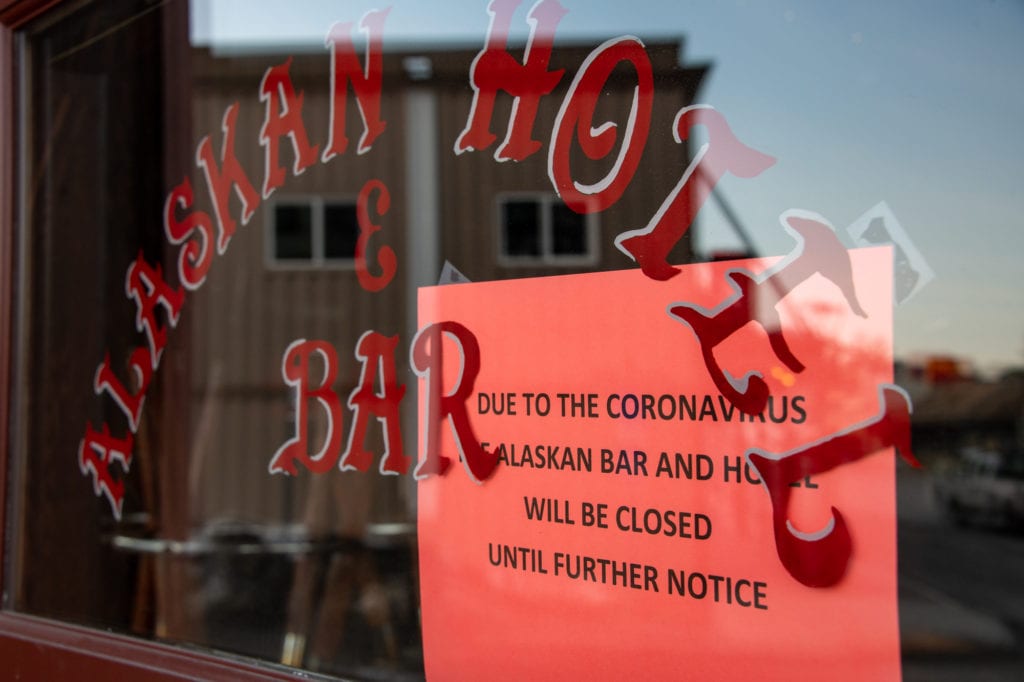
Updated: 5:30 p.m., March 25
Most people entering Cordova by commercial air service must stay home for 14 days following their arrival, according to a mandate announced Friday, March 20. According to the mandate, recent arrivals must maintain a distance of at least 6 feet from other household members and must not go to work or school during this 14-day period.
“The city understands the difficulties this mandate may present,” said Mayor Clay Koplin at a March 20 press conference. “But we’re committed to the health and welfare of our community, and to prevent spread of the coronavirus in Cordova.”
Certain essential healthcare and emergency services employees will be exempt from the 14-day self-isolation requirement, according to a Monday, March 23 release from the city of Cordova. This includes Cordova Community Medical Center employees, Ilanka Clinic employees, the public health nurse, Cordova Police Department employees, Cordova Volunteer Fire Department members, U.S. Coast Guard employees, Alaska State Troopers and U.S. Forest Service enforcement officers. However, these employees will be required to wear face masks, practice exceptional hand hygiene and only go to their places of employment for functions necessary to ensure public safety and health, according to the release.
This health mandate, the first issued by the city, was made in response to the escalating spread of the novel coronavirus in Alaska, Koplin said. As of March 24, no cases of the novel coronavirus have been identified in Cordova, according to a release from the city of Cordova.
The state followed suit with a mandate requiring air arrivals from outside Alaska to self-quarantine for 14 days. This mandate went into effect Wednesday, March 25, and provided narrow exceptions allowing self-quarantined people to seek medical care. Failure to follow this mandate could incur a fine of up to $25,000 and a prison sentence of up to one year. The mandate is planned to be reevaluated by April 21.

According to a March 24 release, the city of Cordova is working to reconcile its self-quarantine mandate with the one issued by the state. In the meantime, the city has asked residents to follow both mandates to the best of their ability.
A separate state mandate went into effect March 24, banning all businesses or gatherings requiring individuals to be within 6 feet of one another, including hair salons, nail salons, tattoo shops, body piercing locations, massage therapy locations and tanning salons. These measures supplemented a March 18 mandate that closed all restaurants, bars and other establishments offering dine-in service, throughout the state.
As of March 25, the total number of confirmed coronavirus cases in Alaska stood at 59, according to Department of Health and Social Services data. Anchorage was the area hardest hit, with 28 confirmed cases.
“The biggest challenge in our containment effort is when people continue to interact with others when they have symptoms,” said Dr. Joe McLaughlin, Alaska’s state epidemiologist, quoted in a DHSS release. “I can’t underscore this point enough: if you feel even mild symptoms of a respiratory infection, you need to immediately go home and stay away from others until your symptoms resolve.”
March 20, officials extended closure of Alaska’s schools to May 1.

Local businesses struggle
Even those businesses not mandated to close have found it difficult to make ends meet. Kayak Cafe, which drew between 50-70 customers per day as a dine-in establishment, now struggles to bring five customers per day to its walk-up window. At current low levels of patronage, the café won’t be able to remain open, co-owner Karen Deaton Perry said.
“I’m happy everybody’s staying home and staying safe,” Deaton Perry said. “It just sucks all ‘round, for everybody. We’re not the only ones.”
As of March 23, Cordova grocery stores had no inventory of hand sanitizer, eggs or butter. However, although some store shelves appear patchy, most food staples have remained in supply. Toilet paper — a scarce commodity in some parts of the U.S. — has also remained available.
The State Emergency Operations Center has verified that there have been no interruptions to Alaska’s supply chains, Koplin announced March 20. Additionally, an extra inventory of crucial items has been ordered, he said.





